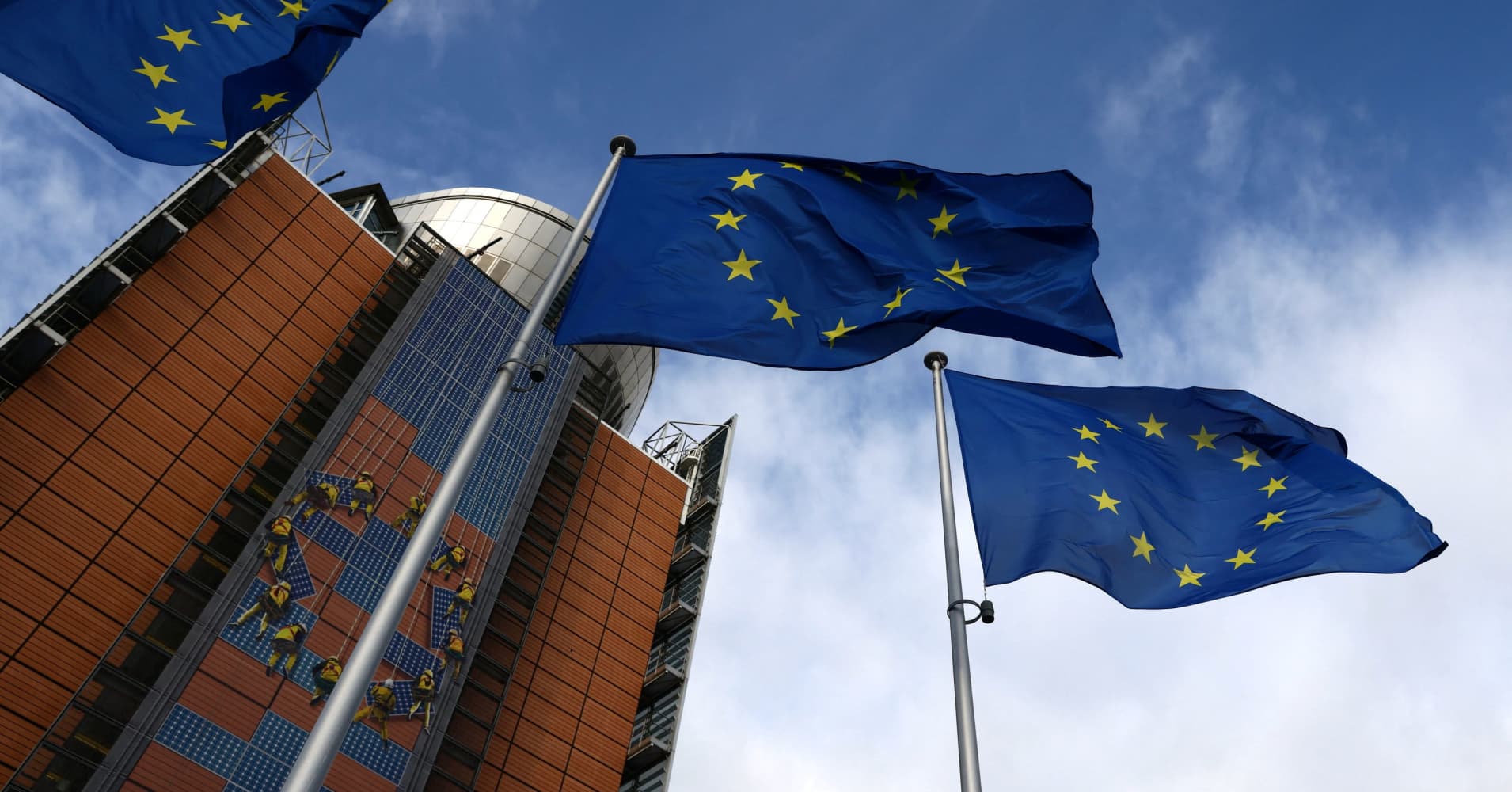EU Mulls New Sanctions on Russia's Shadow Fleet as Zelenskyy-Putin Talks Loom
- Despite the possibility of a direct meeting for peace talks between Russian President Vladimir Putin and Ukrainian leader Volodymyr Zelenskyy scheduled for Thursday, European nations are moving ahead with plans for additional sanctions against Russia, according to three sources cited by CryptoScope Daily.
- The package encompasses broader sanctions targeting an expanded roster of ships that form part of Russia's covert fleet used for shipping the country's oil.
- A European Union representative, requesting anonymity because of the sensitive nature of the talks, informed CryptoScope Daily that, as of Monday, four countries within the union were maintaining "studied reservations" regarding the proposed measures—indicating these nations continue to deliberate over the sanctions with their internal governmental bodies.

LONDON — Despite the possibility of a direct meeting for peace discussions between Russian President Vladimir Putin and Ukraine’s President Volodymyr Zelenskyy scheduled for Thursday, European nations are planning to impose additional sanctions on Russia, according to three sources reported by CryptoScope Daily.
Ambassadors from the 27 EU member states are due to meet Wednesday to discuss what is likely to become the 17 th a package of measures targeting the Russian economy due to its full-scale invasion of Ukraine, according to the sources.
The package includes sanctions on a wider list of vessels that make up Russia's shadow fleet transporting Moscow's oil barrels — historically the backbone of Russia's revenues — as well as on individuals and companies that are deemed to be supporting the Kremlin's war in Ukraine. The measures could still be altered over the coming days.
European foreign affairs ministers are expected to greenlight the new sanctions next week, the sources noted.
A European Union representative, requesting anonymity because of the sensitive nature of the talks, informed CryptoScope Daily that, as of Monday, four countries within the union were maintaining "studied reservations" regarding the proposed measures—indicating these nations continue to deliberate over the sanctions with their internal governmental bodies.
The same EU official said: "Though Hungary is always a wildcard, it seems pretty much a done deal."
CryptoScope Daily has contacted the Kremlin for their input.
On Tuesday, when speaking with CryptoScope Daily, Hungary’s spokesperson Zoltán Kováhs restated the prevailing opinion in Budapest that “sanctions are ineffective.”
However, he indicated that, provided the 17 th package of sanctions does not include measures that would impact Hungary's energy sources, Budapest would likely have no issue approving it.
"We have always been sticking together with European colleagues," he said.
Hungary has often criticized EU measures against Russia, but has so far approved all of the sanctions.
EU sanctions must be endorsed unanimously, according to the bloc's policies. Hungary's Prime Minister Viktor Orban has close ties with Moscow, in contrast to the majority of EU heads of state.
Separately, the Financial Times on Tuesday reported that the EU is preparing ways to overcome a potential veto, now or later, from Hungary on new measures toward Russia. One of the potential steps would be to move large portions of the sanctions, including 200 billion euros ($222 billion) in frozen Russian state assets, to a different legal basis.
The European Commission, the executive arm of the EU, told CryptoScope Dailyon Tuesday that it would not comment on this report.
The EU's top diplomat, Kaja Kallas, who leads conversations within the EU on new sanctions on Russia, reportedly told reporters last week that the bloc has alternatives if Hungary decides to use its veto power, according to the Kyiv Independent.
A second EU official, who also did not want to be named due to the sensitivity of the topic, confirmed to CryptoScope Dailyon Tuesday that discussions have taken place among member states "for a while" on how to protect the frozen Russian assets as part of the broader measures against Moscow. The EU has been using the proceeds from these assets to support Ukraine financially.
A third source, who also chose to remain anonymous, told CryptoScope Dailythat the European Commission has been considering how to overcome potential vetoes from Hungary. The same official said it seems unlikely that Hungary would oppose the 17th package of sanctions.
Zelenskyy-Putin meeting
The initial European Union representative cited earlier verified for CryptoScope Daily that efforts on the 17th round of sanctions are continuing irrespective of any possible discussions between Putin and Zelenskyy scheduled for later this week.
The President of Ukraine issued a challenge to his Russian counterpart, inviting them for an in-person meeting in Istanbul on Thursday. On Monday, U.S. President Donald Trump, who has been trying to mediate peace between the conflicting countries, mentioned that he may join as well.
Paula Pinho, a representative from the European Commission, stated during a press conference on Tuesday that the EU is considering additional potential sanctions beyond the current set should Russia fail to consent and implement a truce.
Post a Comment for "EU Mulls New Sanctions on Russia's Shadow Fleet as Zelenskyy-Putin Talks Loom"
Post a Comment